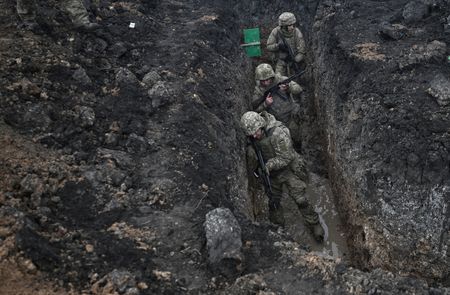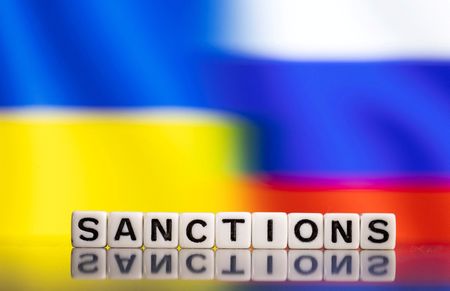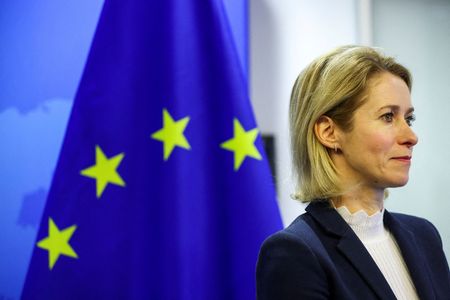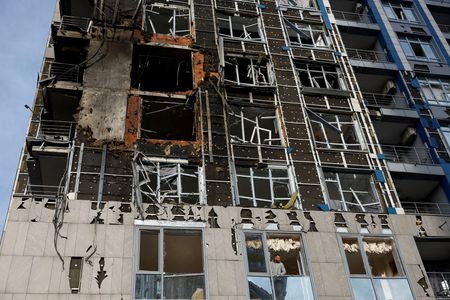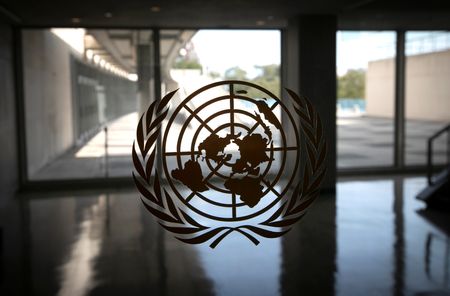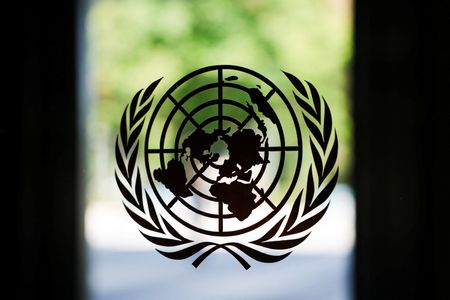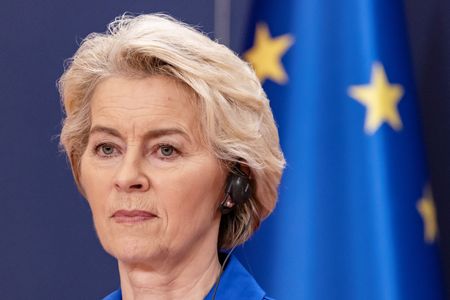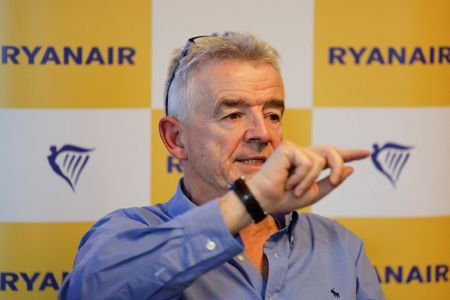By Julia Payne and Lili Bayer
BRUSSELS (Reuters) – The European Union renewed on Monday its wide-ranging sanctions on Russia over the war in Ukraine, after Hungary stopped holding up the move in return for a declaration on energy security.
“Europe delivers: EU Foreign Ministers just agreed to extend again the sanctions on Russia,” Kaja Kallas, the bloc’s foreign policy chief, posted on social media.
“This will continue to deprive Moscow of revenues to finance its war,” she added. “Russia needs to pay for the damage they are causing.”
Officials from other EU countries had warned that failure to roll over the sanctions before a Jan. 31 deadline would have consequences, such as the unfreezing of Russian assets in Europe used to help Kyiv.
The sanctions up for renewal include all sector-based bans on trade as well as measures that immobilised Russia’s central bank assets. Legally, the EU’s 27 countries must unanimously vote to renew these restrictions every six months.
Profits from the frozen assets are being used to finance a $50-billion loan to Ukraine backed by the G7.
Hungarian Prime Minister Viktor Orban, who maintains close ties with Moscow, had first called for consultations with the U.S. Trump administration before a renewal decision. He also said it was time for a “sanctions-free” relationship with Russia.
But President Donald Trump has not backed the Hungarian position. He said last week he was ready to increase economic pressure on Russia to strike a peace deal.
Budapest then cited its complaints about Ukraine ending a transit deal that brought Russian gas to Hungary.
ENERGY STATEMENT
At a meeting of EU ambassadors on Monday, the European Commission presented a statement declaring it was “ready to continue discussions with Ukraine on the supply to Europe through the gas pipeline system in Ukraine”.
Asked at a press conference whether the statement actually meant anything, Kallas said: “Well, it meant (something) to Hungary, so that mattered.”
The statement, seen by Reuters, also said the Commission – the EU’s executive body – was ready to involve Hungary and Slovakia in the process. There was no explicit mention of resuming Russian gas flows.
During the weekend, Ukrainian President Volodymyr Zelenskiy told Bloomberg he was willing to sign a contract to move Azeri gas through Ukraine to the EU.
Baku tried to broker an agreement last year to continue Russian flows to the EU or swap in Azeri gas but these failed. Azerbaijan has limited spare gas production.
“The Commission will approach Ukraine to request assurances regarding the maintenance of oil pipeline transfers to the EU,” the EU statement also said.
Hungarian Foreign Minister Peter Szijjarto said he was satisfied with the Commission’s assurances.
“The European Commission committed itself to the protection of the natural gas and oil pipelines leading to member states of the European Union,” he said in a Facebook post.
(Additional reporting by Anita Komuves and Bart Meijer; Writing by Andrew Gray; Editing by Alison Williams, Sharon Singleton and Rod Nickel)

